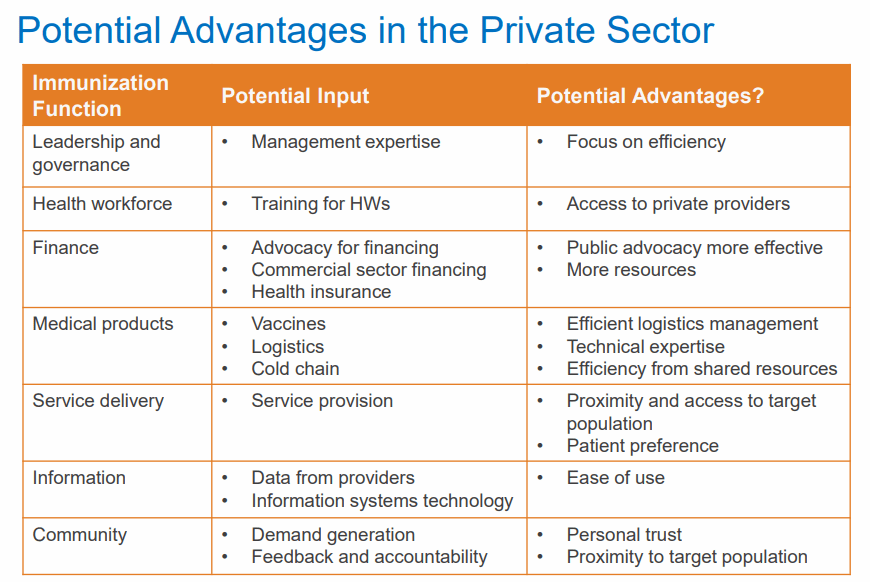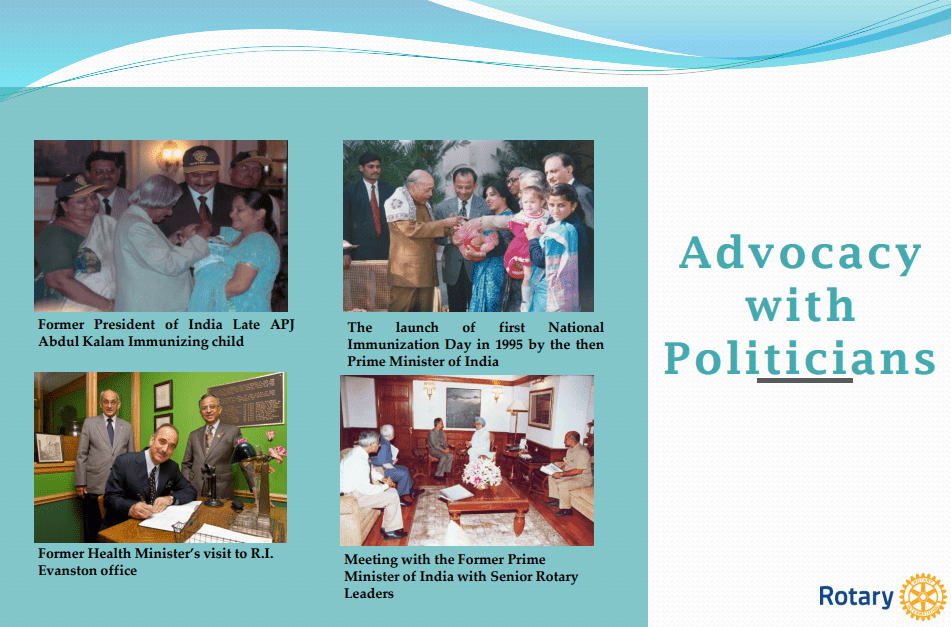Estimated readtime: 4.5 min
LNCT recently held its first virtual learning workshop for six countries on the topic of engaging the private sector to support immunization. The workshop took place over four days during the end of October and early November. The purpose of this workshop was to help countries better understand how to engage with for-profit and not-for-profit private sector organizations to strengthen immunization programs, including service provision, demand generation, and the application of private sector approaches and technologies. The broad objectives of the workshop were to: (1) examine the range of private sector actors and how to best draw upon their expertise and positions within communities to strengthen immunization programming; (2) discuss common challenges, potential risks, and good practices associated with engaging the private sector; and (3) discuss practical ways to start engaging the private sector. The countries invited to participate in this virtual workshop, including the Republic of Congo, Côte d’Ivoire, Georgia, Kenya, São Tomé and Príncipe, and Sudan, identified this topic as a priority during last year’s network-wide meeting.
Throughout the workshop, presentations from technical experts were complemented by country experiences and discussions among the participants. Here are a few key learnings that emerged from the workshop:
- It helps to put in place deliberative processes to enable better leveraging of private sector actors, including identifying specific gaps or challenges in the immunization program and how the private sector could be drawn upon to fill those gaps or address challenges.
- Governments need to develop a policy framework for public-private engagement in immunization for both for-
 profit and not-for-profit actors that optimizes current arrangements and considers how the system can be shaped to achieve longer-term goals.
profit and not-for-profit actors that optimizes current arrangements and considers how the system can be shaped to achieve longer-term goals. - Effective public-private partnerships require that both parties are incentivized to work together, as well as alignment of expectations, routine and transparent communication, and flexibility.
- NGOs and CSOs can leverage their links to communities to mobilize the population and understand barriers to immunization, but an absence of clear governmental structures for sustainably engaging them and coordinating their activities can impact their effectiveness.
- Private sector providers may contribute to equitable immunization coverage by providing services in places the government may not be able to reach, such as conflict zones and hard-to-reach areas, or to people the government cannot access, such as Internally Displaced Persons and refugees. They may also contribute to efficiency by reducing the burden on public facilities, while contributing to effectiveness by improving the population’s awareness and acceptance of new vaccines.
- When considering innovative approaches or technologies from the private sector, successful solutions have the following characteristics: evidence of impact, local ownership and/or development (this includes early engagement of government partners to ensure feasibility, scalability, and sustainability), the ability to integrate into the broader health system, and a public-private partnership with the potential to achieve results at scale.
And here are just a few of the many country experiences shared during the workshop:
- In Indonesia, the private sector plays a large role in immunization but lacks a coordinated immunization supply chain. The Indonesia Pediatric Society led a cross-sector effort to improve coordination across the public and private sectors. Some of the components included conducting an advocacy training to ensure accountability and
 coordination, developing and implementing an electronic immunization reporting and quality assurance system, and coordinating messaging across public and private immunization providers.
coordination, developing and implementing an electronic immunization reporting and quality assurance system, and coordinating messaging across public and private immunization providers. - In India, Rotary International not only advocated for the polio vaccine with politicians, religious leaders, and other stakeholders, but provided financial and operational support and took part in social mobilization efforts.
- In Sudan, the private sector is actively engaged in service delivery, with 55% of private health facilities offering immunization. Not-for-profit providers often operate in rural areas, providing services in conflict or other hard-to-reach areas. The government provides vaccines to all private providers, along with other essential resources (except refrigerators), and supportive supervision. Though Sudan has a well-organized program, there is still a need to strengthen training and monitoring and develop a policy framework for public-private engagement.
- In Côte d’Ivoire, a partnership between the government and Orange resulted in M-Vaccin, an innovation that leverages mobile technology to improve immunization coverage. It uses text and voice messaging to educate caregivers about immunization, send appointment reminders, create personalized immunization schedules, and improve data availability, quality and use. Orange solicited feedback from health workers multiple times during the development process and learned that the application was too complicated. Simplifying the application led to increased use.
We are very grateful for the active engagement from our country participants, presenters, and facilitators. Virtual formats certainly have their own unique challenges, but we appreciated that it allowed us the opportunity to expand the number of technical experts and country stakeholders sharing their expertise and experiences.
For those of you who did not attend the meeting, the presentations and session recordings can be found here on our website (you will need to log in to view them). You may also be interested in our webinar on Nigeria’s experience engaging the private sector to support immunization. We would like to encourage you to continue engaging on this topic with your fellow network members, experts, and partners on the LNCT website’s discussion forum, and if you are interested in learning more about a specific theme or country experience discussed during this workshop, please let us know!
